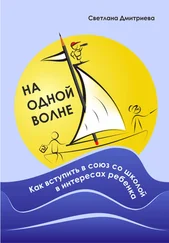Взаимосвязь между эмоциями, когнитивными способностями и поведением: см. Daniel Goleman, Emotional Intelligence (New York: Bantam, 1995); Goleman, Boyatzis, and McKee, Primal Leadership .
Управленческий стресс возникает потому, что лидерство требует реализации властных полномочий: см. John Kotter, Power in Management: How to Understand, Acquire, and Use It (New York: AMACOM Press, 1979); John Kotter, The General Managers (New York: Free Press, 1982); David McClelland, Power: The Inner Experience (New York: Irvington Press, 1975); Gary A. Yukl, Leadership in Organizations , 5th edition (Upper Saddle River, NJ: Prentice Hall, 2001) и Gary A. Yukl and David Van Fleet, “Theory and Research on Leadership in Organizations,” в Handbook of Industrial and Organizational Psychology , 2nd edition, vol. 3, ed. Marvin D. Dunnette and Leaetta M. Hough (Palo Alto, CA: Consulting Psychologists Press, 1990): с. 147–197. Первые исследования на тему управленческого стресса проводились Дэвидом Макклелландом – психологом, специализирующимся на проблемах мотивации, – и его коллегами; см. David McClelland, Human Motivation (Glenview, IL: Scott, Foresman & Co., 1985).
Защитные реакции: см. Chris Argyris, Strategy, Change & Defensive Routines (Boston: Pitman Publishing, 1985). См. также Арджирис К. Организационное научение. – М.: ИНФРА-М, 2004, и Мартин Р. Как изменить мышление компании , в кн. Управление изменениями, серия «Классика Harvard Business Review». – М.: Альпина Бизнес Букс, 2006.
Управленческий стресс: см. Alan F. Fontana, Roberta L. Rosenberg, Jonathan L. Marcus, and Robert D. Kerns, “Type A Behavior Pattern, Inhibited Power Motivation, and Activity Inhibition,” Journal of Personality and Social Psychology 52 (1987): с. 177–183; John B. Jemmott III, “Psychosocial Stress, Social Motives and Disease Susceptibility,” (PhD diss., Harvard University, 1982); David McClelland, Human Motivation (1985); David McClelland, Erik Floor, Richard Davidson, and Clifford Saron, “Stressed Power Motivation, Sympathetic Activation, Immune Function, and Illness,” Journal of Human Stress 6, № 2 (1980): с. 11–19; David McClelland and John B. Jemmott III, “Power Motivation, Stress, and Physical Illness,” Journal of Human Stress 6, № 4 (1980): с. 6–15; David McClelland and Carol Kirshnit, “Effects of Motivational Arousal on Immune Function” (неопубликованная рукопись, Harvard University, 1982); и David McClelland, S. Locke, R. Williams, and M. Hurst, “Power Motivation, Distress and Immune Function,” (неопубликованная рукопись, Harvard University, 1982); Richard Boyatzis, Melvin Smith, and Nancy Blaize, “Sustaining Leadership Effectiveness Through Coaching and Compassion: It’s Not What You Think,” Academy of Management Learning and Education (готовится к изданию); также см. источники, указанные в пункте 2 примечаний к данной главе, и в Приложении А.
Хронический стресс и острый стресс: см. Suzanne Segerstom and Gregory Miller, “Psychological Stress and the Human Immune System: A Meta-analytic Study of 30 Years of Inquiry,” Psychological Bulletin 130, № 4 (2004): с. 601–630.
Эффективность руководства и потребность во власти: см. David McClelland, Human Motivation (1985); David McClelland and Richard Boyatzis, “The Leadership Motive Pattern and Long Term Success in Management,” Journal of Applied Psychology 67 (1982): с. 737–743; Fontana и др., “Type A Behavior Pattern…”; Ruth L. Jacobs and David McClelland, “Moving Up the Corporate Ladder: A Longitudinal Study of the Leadership Motive Pattern and Managerial Success in Women and Men,” Consulting Psychology Journal: Practice and Research 46 (1994): с. 32–41; и Sharon R. Jenkins, “Need for Power and Women’s Careers over 14 Years: Structural Power, Job Satisfaction, and Motive Change,” Journal of Personality and Social Psychology , 66 (1994): с. 155–165.
Стресс и мозговые процессы: специальные разъяснения на эту тему даются в Приложении А.
Самоконтроль как фактор стресса: см. Roy Baumeister, Todd Heatherton, and Diane Tice, Losing Control: How and Why People Fail at Self-Regulation (New York: Academic Press, 1994); Roy Baumeister, “Ego Depletion and Self-regulation Failure: A Resource Model of Self-Control,” Alcoholism: Clinical and Experimental Research 27, № 2 (2003): с. 281–284; Robert Sapolsky, “The Physiology and Pathophysiology of Unhappiness” в кн. Well-Being: The Foundation of Hedonic Psychology , ed. Daniel Kahnemann, Edward Diener, and Norbert Schwarz (New York: Russell Sage Foundation, 1999), с. 453–469.
Стресс, аффект и когнитивные функции: см. Mustafa Al’Absi, Kenneth Hugdahl, and William Lovallo, “Adrenocortical Responses and Altered Working Memory Performance,” Psychophysiology 39 (2002): с. 95–99; Hedva Braunstein-Bercovitz, Inbal Dimentman-Ashkenasi, and R. E. Lubow, “Stress Affects the Selection of Relevant from Irrelevant Stimuli,” Emotion 1 (2001): с. 182–192; Michael Ennis, Kimberly Kelly, Mary K. Wingo, and Paul L. Lambert, “Cognitive Appraisal Mediates Adrenomedullary Activation to a Psychological Stressor,” Stress and Health 17 (2001): с. 3–8; Peter Hancock and Paula A. Desmond, Stress, Workload and Fatigue (Mahwah, NJ: Lawrence Erlbaum, 2001).
Влияние кортизола: см. Sally S. Dickerson and Margaret Kemeny, “Acute Stressors and Cortisol Responses: A Theoretical Integration and Synthesis of Laboratory Research,” Psychological Bulletin 130, № 3 (2004): с. 355–391; Oakley Ray, “How the Mind Hurts and Heals the Body,” American Psychologist 59, № 1 (2004): с. 29–40; Suzanne Segerstom and Gregory Miller, “Psychological Stress and the Human Immune System: A Meta-analytic Study of 30 Years of Inquire,” Psychological Bulletin 130, № 4 (2004): с. 601–630; Gregory Miller, Sheldon Cohen, Sarah Pressman, Anita Barkin, Bruce Rabin, and John Treanor, “Psychological Stress and Antibody Response to Influenza Vaccination: When Is the Critical Period for Stress, and How Does It Get Inside the Body?” Psychosomatic Medicine 66, № 2 (2004): с. 215–223.
Влияние кортизола: см. Sally S. Dickerson and Margaret Kemeny, “Acute Stressors and Cortisol Responses: A Theoretical Integration and Synthesis of Laboratory Research,” Psychological Bulletin 130, № 3 (2004): с. 355–391; Oakley Ray, “How the Mind Hurts and Heals the Body,” American Psychologist 59, № 1 (2004): с. 29–40; Suzanne Segerstom and Gregory Miller, “Psychological Stress and the Human Immune System: A Meta-analytic Study of 30 Years of Inquire,” Psychological Bulletin 130, № 4 (2004): с. 601–630; Gregory Miller, Sheldon Cohen, Sarah Pressman, Anita Barkin, Bruce Rabin, and John Treanor, “Psychological Stress and Antibody Response to Influenza Vaccination: When Is the Critical Period for Stress, and How Does It Get Inside the Body?” Psychosomatic Medicine 66, № 2 (2004): с. 215–223.
Читать дальше
Конец ознакомительного отрывка
Купить книгу
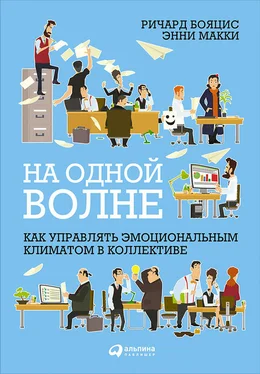
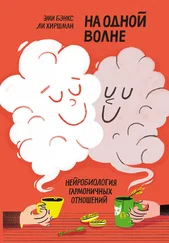

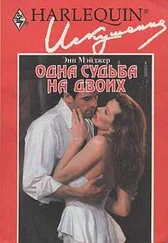


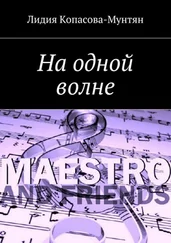
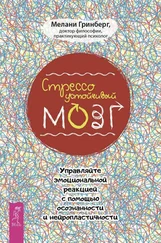
![Андрей Нуждин - На одной волне [СИ]](/books/413295/andrej-nuzhdin-na-odnoj-volne-si-thumb.webp)
![Андрей Нуждин - Зона Питер. На одной волне [litres]](/books/432371/andrej-nuzhdin-zona-piter-na-odnoj-volne-litres-thumb.webp)
